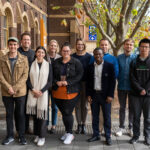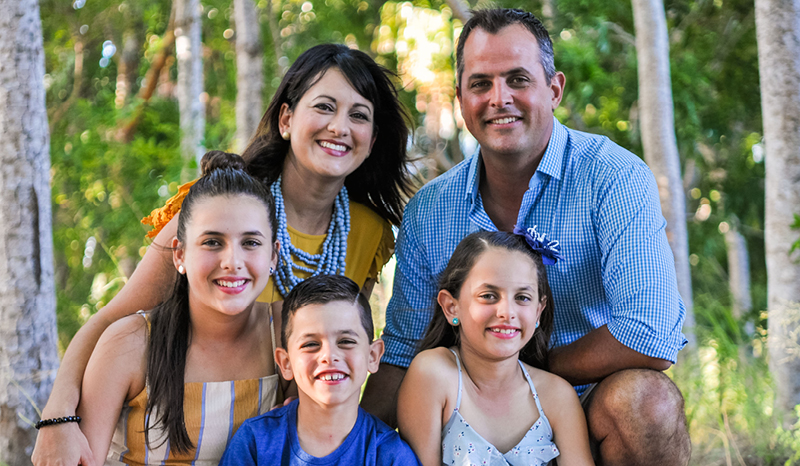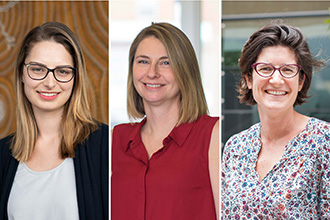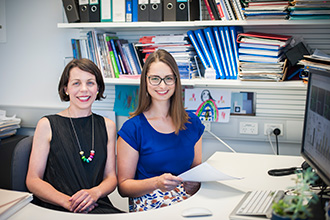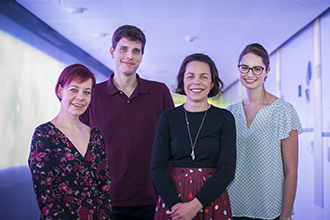O’Keeffe P, Nouri Y, Saw HS, Moore Z, Baldwin TM, Olechnowicz SWZ, Jabbari JS, Squire DM, Leslie S, Wang C, You Y, Ritchie ME, Cross RS, Jenkins MR, Audiger C, Naik SH, Whittle JR, Freytag S, Best SA, Hickey PF, Amann-Zalcenstein D, Bowden R, Brown DV. TIRE-seq simplifies transcriptomics via integrated RNA capture and library preparation. Scientific Reports. 2025;15(1):10.1038/s41598-025-98282-8
Whittle JR, Kriel J, Fatunla OE, Lu T, Moffet JJD, Spiteri M, Best SA, Freytag S. Spatial omics shed light on the tumour organisation of glioblastoma. Seminars in Cell and Developmental Biology. 2025;167:10.1016/j.semcdb.2024.12.006
Kay KE, Lee J, Hong ES, Beilis J, Dayal S, Wesley ER, Mitchell S, Wang SZ, Silver DJ, Volovetz J, Johnson S, McGraw M, Grabowski M, Lu T, Freytag L, Narayana VK, Freytag S, Best SA, Whittle JR, Wang Z, Reizes O, Yu JS, Hazen SL, Brown JM, Bayik D, Lathia J. Tumor cell-derived spermidine promotes a pro-tumorigenic immune microenvironment in glioblastoma via CD8+ T cell inhibition. Journal of Clinical Investigation. 2025;135(2):10.1172/jci177824
Whittle J, Rosenthal M, Spiteri M, Tobler R, Topp M, Cain S, Jones J, Shaya S, Valkovic A, Fatunla O, Dimou J, Roberts-Thomson S, McArdle D, Lui E, Nijagal B, Mitchell C, Grimmond S, Best S, Freytag S, Drummond K. CTNI-15. A PERIOPERATIVE STUDY OF SAFUSIDENIB IN PATIENTS WITH IDH1 MUTATED GLIOMA. Neuro-Oncology. 2024;26(Supplement_8):10.1093/neuonc/noae165.0382
Furst L, Roussel E, Leung R, George A, Li J, Best S, Whittle J, Cain J, Firestein R, Faux M, Eisenstat D. CNSC-36. REGULATION OF CELL FATE IN PAEDIATRIC HIGH-GRADE GLIOMA BY THE HOMEOBOX TRANSCRIPTION FACTOR DLX2. Neuro-Oncology. 2024;26(Supplement_8):10.1093/neuonc/noae165.0192
Cain SA, Topp M, Rosenthal M, Tobler R, Freytag S, Best SA, Whittle JR, Drummond KJ. A perioperative study of Safusidenib in patients with IDH1-mutated glioma. Future Oncology. 2024;20(33):10.1080/14796694.2024.2383064
Lu T, Freytag L, Moffet J, Kriel J, Whittle J, Freytag S, Best SA. OS07.5.A MULTI-MODAL EXAMINATION OF SPATIAL HETEROGENEITY IN THE ASTROCYTOMA MICROENVIRONMENT. Neuro-Oncology. 2024;26(Supplement_5):10.1093/neuonc/noae144.069
Whittle JR, Rosenthal M, Spiteri M, Cain S, Topp MD, Shaya S, Jones J, Valkovic A, Fatunla O, Dimou J, Tobler R, Roberts-Thomson S, McArdle D, Lui E, Nijagal B, Grimmond SM, Best SA, Freytag S, Drummond K. 443O A perioperative study of safusidenib in patients with IDH1 mutated glioma. Annals of Oncology. 2024;35:10.1016/j.annonc.2024.08.513
Furst LM, Roussel EM, Leung RF, George AM, Best SA, Whittle JR, Firestein R, Faux MC, Eisenstat DD. The Landscape of Pediatric High-Grade Gliomas: The Virtues and Pitfalls of Pre-Clinical Models. Biology. 2024;13(6):10.3390/biology13060424
Moffet J, Kriel J, Lu T, Freytag L, Whittle J, Best S, Freytag S. Abstract 5498: Multi-modal examination of spatial heterogeneity in the astrocytoma microenvironment. Cancer Research. 2024;84(6_Supplement):10.1158/1538-7445.am2024-5498


